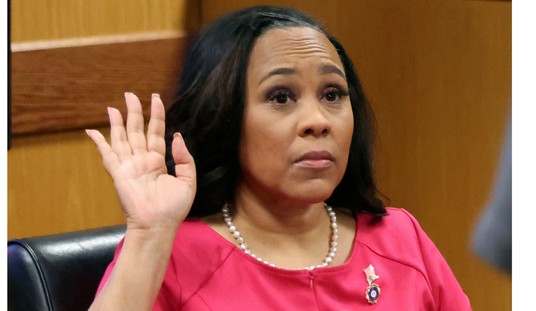“Well, there are several programs that we’ve reported on so far and there’s a lot more coming,” Glenn Greenwald told Morning Joe, but that doesn’t make it into this clip. Instead, Greenwald gets into a debate with Mika Brzezinski over the legality of the NSA’s surveillance in the light of the FISA laws and PATRIOT Act, with Brzezinski insisting that there “isn’t haphazard probing into all of our personal e-mails.” Greenwald suggests that it’s not clear that there hasn’t been exactly that kind of probing:
http://www.youtube.com/watch?v=CGt_i_iVSrM
The Patriot Act “lowered the standard” for probably cause, Greenwald explained, which is part of the reason it was controversial to begin with. But even its proponents back then could not have anticipated what it’s turned into, he argued: “Nobody had any inkling that the government would ever use the Patriot Act not to target specific individuals and say there’s reasonable basis or probable cause to believe there’s wrongdoing — but to use the Patriot Act to say, this entitles us to collect records for every single American regardless of whether or not we’ve done anything wrong.”
Brzezinski jumped in to counter that the wiretapping and reviewing emails does require a warrant. “It’s not like there’s haphazard probing into all of our personal emails,” she pressed.
“The White House talking points that you’re using are completely misleading and false,” Greenwald shot back, noting that a warrant is only needed when the communication is between two American citizens who are both on American soil. “The Senate has been repeatedly asking for the numbers of how many Americans they’re doing that to, and the NSA keeps saying — and it’s false — they can’t provide those numbers. Those talking points you’re reading from are completely false, as anybody who has paid even remote debate know over the last ten years.”
Stating that she was simply asking a yes-or-no question about legality, Brzezinski quipped that Greenwald didn’t appear to want to answer. After a bit of back-and-forth, Greenwald said if we’re talking about legality, it’s worth noting that Obama’s Justice Department “has repeatedly blocked courts from ruling on the legality.”
Has there been that kind of probing? Maybe, maybe not, but I’d guess that no one in Congress can answer that question with full knowledge and full honesty at the moment, and that’s one of the big problems with this program. The NSA claims it hasn’t done anything of the sort, but as Tim Weiner writes at Bloomberg, they don’t have a great track record of credibility on these kinds of denials:
From day one, the NSA collected millions of messages from RCA, ITT and Western Union, the three great global telecommunications companies of the day. The program, Shamrock, ran under presidents from Harry Truman to Gerald Ford. Its roots lay in FBI-Army counterespionage against the Soviets. If it caught a spy of great note, that fact remains unrecorded in the annals of American intelligence.
More ominously, the NSA, by request of the Central Intelligence Agency and the Federal Bureau of Investigation, eavesdropped on Americans for a decade under Presidents Lyndon Johnson and Richard Nixon. The CIA wanted to snoop on Americans suspected of “civil disorders, radical student or youth activities, racial militant activities, radical antiwar activities [and] related media activities.”
Hoover and the FBI wanted all that and more: wiretaps of civil-rights and black-power advocates. This program, Minaret, created thousands of intelligence reports. NSA instructed its personnel to keep their fingerprints off the reporting. …
In 1973, after Hoover’s death, the Justice Department caught wind of Minaret. Who, me? the NSA said. It falsely contended that its spying on Americans was “an incidental and unintended act,” a lie that didn’t stand for long.
The same thing happened three months into the first Obama administration. After the passage of the new laws on government eavesdropping, the laws that stand today, the NSA was caught in the act of systemically “overcollecting” the domestic communications of Americans in the spring of 2009. Oops, sorry, the NSA said. Never again.
I tend to agree with Joe Scarborough on two points. First, we don’t know what the NSA has been doing with these programs, nor will we until we get an independent investigation into those activities. The agency got involved in domestic politics a few decades ago, and that should be cautionary enough to prompt a lot more accountability on these kinds of programs than there seems to be now.
Second, while we don’t know how far the NSA has gone, the legal scope of their surveillance surpasses what most people thought the PATRIOT Act and FISA amendments allowed. If this had been known to Congress at the time of those bills’ passage and renewals, they probably wouldn’t have passed. Congress needs to take a close look at those laws again in light of these programs and the opacity of them to America’s elected representatives.








Join the conversation as a VIP Member